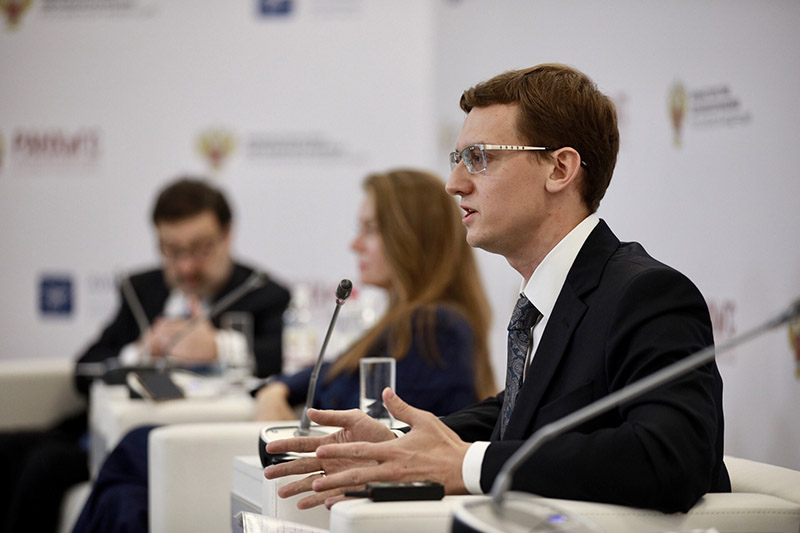Russia should introduce Covid-19 contact tracing system like S. Korea does: Expert

Vladimir Nazarov, the director at the Financial research institute of the Russian Ministry of Finance, during the “Pandemic 2020: challenges, solutions, consequences” conference. Photo: RANEPA press service.
MOSCOW, Oct 13, 2020, Pan Pacific Agency. South Korea’s measures against the novel coronavirus pandemic should be carefully studied in Russia, Vladimir Nazarov, the director at the Financial research institute of the Russian Ministry of Finance, said during the “Pandemic 2020: challenges, solutions, consequences” online-conference.
In S. Korea, a tracing of the Covid-positive patients “digital footprint” and their entire network of contacts has been made available with the latest IT-solutions. “As a result, authorities knew very quickly who needed to be tested and very quickly sent people with a positive test result under quarantine. Similar solutions have been applied in other countries as well,” Mr. Nazarov noted.
“This epidemic has one big feature in restrictions’ measures. Classic quarantine is a separating sick people from healthy people. Current restrictions, that affected most of the countries of the world this year, unfortunately, is the self-isolation of population nationwide, because it was difficult to track who is sick and who is healthy: many Covid-19 confirmed cases are asymptomatically, and the incubation period is long,” the scientist said.
Coronavirus-related restrictions under the entire population is “socially unacceptable,” Vladimir Nazarov said. “As I think, digital contact tracing is the future in the fight against epidemics. It’s clear that an ordinary person, including me, cannot but be frightened by such a measures. But it’s necessary to find a balance between the right to privacy of personal information and the right to freedom of movement,” he said.
The fighting against pandemic in 2020 was troubled due to the increased concentration and mobility of the population in Russia, Mr. Nazarov’s presentation shows during the conference. Today around 23% of Russians live in cities with a population of 1 million people or more, and this share is a quarter more than in 2000. In 2018, 155 million people crossed the borders of Russia, which is twice as much as in 2000.
“It’s necessary: to define the rights of the epidemiological surveillance authorities to collect and use data on the movements of infected persons through transport cards, payment systems and urban video surveillance systems,” Vladimir Nazarov suggested in his presentation. He also suggested starting the development of automated contact tracing systems based on mobile phones data (through QR-codes and Bluetooth connections) and “envisage the possibility of rapidly expanding the staff engaged in contact tracing.”
Russian version of this article is available here.